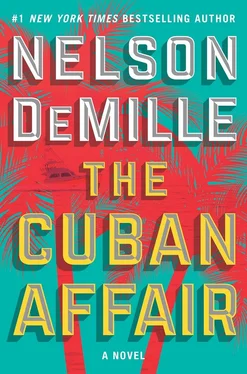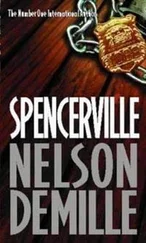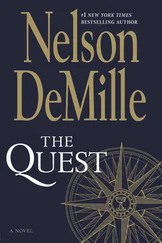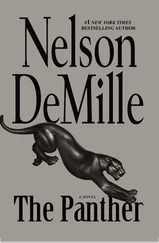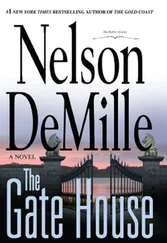Before I had to make the decision to fire first and answer questions later, a middle-aged lady with a British accent asked, “Are you all right?”
I took a deep breath. “We’re fine. How about you?”
“Oh... Are you American?”
“Canadians, actually.” I glanced at Sara, who was sitting with her eyes closed, breathing hard.
There was a man in the driver’s seat and he leaned past the lady and said, “We’re trying to get to Santa Clara. No bloody road signs. I think we missed it.”
“It’s up ahead.”
Sara leaned over. “It can’t be more than five or ten kilometers.”
“Thank you.” He asked, “Are you having trouble?”
“Just stopped for a wee pee,” I replied.
“Oh... All right, then. Carry on.”
The lady said, “I love your car.”
And off they went, to discover Cuba for themselves.
Sara opened the door and I asked, “Where are you going?”
“For a wee pee.”
“I think I’ll join you.”
We finished our business and got back on the road. I could see the taillights of the British couple up ahead and I closed the distance.
Sara said, “That was the most frightening five minutes of my life.”
I wished I could say the same. “You were very cool,” I assured her.
She stayed silent, then asked, “If they were police, what would you have done?”
“Killed them.”
She had no reply.
I kept a few hundred yards behind our fellow tourists, and I saw now that the terrain was getting more hilly and the countryside was very dark.
Sara took Eduardo’s cigar from her pocket, lit it with Jack’s Zippo, then took a long drag and passed it to me.
We shared the cigar as we drove in silence. She said, “We might not be so lucky next time.”
“Let’s avoid a next time.”
Sara was looking at the map. “The exit should be coming up.”
In fact, I could see the brake lights of our British friends, then their right-hand turn signal.
I closed the gap and followed them onto the exit, which was marked but unlit. At the end of the exit ramp was a T-intersection, but no sign. The Brits turned left.
Sara looked up from her map. “Santa Clara is to the left. The middle of nowhere is to the right.”
I ditched the cigar and turned right onto a dark, narrow road and drove slowly down a hill. There was a small lake to my left, but if there were any houses along this road, they weren’t lit or visible, and there wasn’t a single light in the distance.
Sara said, “The area around Santa Clara was once known for its tobacco. I think most of the farms are abandoned, so maybe we can find an empty house or barn.”
“Right.”
My head beams illuminated the potholed road, but the glare reduced my night vision, so I turned off the headlights, and the moonlight now revealed bare fields, surrounded by low hills.
Sara checked her map. “Nothing on this road until a place called Osvaldo Herrera, about ten kilometers.”
“Okay.” I continued slowly with my headlights off, looking for cover and concealment, just like in my Humvee in Allfuckedupistan.
We went another few hundred yards, and over the next rise Sara spotted a large building up ahead.
As we got closer, we could see that it was a wooden barn-like structure with a partially collapsed roof. There was a dirt path leading to it and I turned onto the path and drove into the building through a doorless opening. I shut off the engine and the night became very quiet.
Sara got out, leaving her door open, and I did the same and looked around. I could see the sky through the holes in the roof, but I couldn’t see any window openings. I smelled the faint odor of tobacco, and Sara said, “This was a tobacco-drying shed.”
“Wasn’t there a tobacco farm on the Yale itinerary for today?”
“Yes.”
Coincidence? Or a great cosmic joke? “Check it off.”
As Sara inspected our accommodations, I went outside and reconned the surrounding terrain. I still couldn’t see a single light in the distance, and I was fairly sure that no one had seen us drive in, and that no one would be calling the police tonight. There might, however, be some activity here in the morning, so we had to get back on the highway at the crack of dawn.
I came around to the open doorway and noticed my tire marks on the dirt path, so I looked for some fallen vegetation to cover my tracks. There wasn’t much around, but the moon would set soon, and darkness was the best concealment.
Sara came out of the barn and asked in a whisper, “What are you doing?”
“Earning my pay.”
“Come inside.” She took my arm and led me back into the barn.
It was past 3 A.M., so we had less than four hours until dawn, then we could get back on the road.
Sara said, “Let’s get some sleep. You want the front seat or back?”
Obviously she had never camped out in a combat zone. “I’ll stand watch for the next two hours, then wake you to relieve me, and give you the gun. You’ll wake me at first light, and we’ll leave here as soon as we don’t need to use our headlights.”
She stayed quiet a moment, then said, “All right.” She asked, “Can I have a kiss?”
I don’t normally kiss the guards that I post, but I made an exception and we kissed good-night. She climbed into the rear seat of the Buick Roadmaster and shut the door without making a noise.
The barn door was missing, so I sat on the dirt floor with my back resting against the Buick’s rear bumper, and drew my Glock, facing the open doorway.
Well, it had already been a long day and a longer night and I should be tired, and I probably was, but I was fully alert. I remember this feeling in Cantstandthishit Province.
The moon was setting and the sky was dark, and there was no breeze. Tree frogs croaked nearby and a night bird sang in the distance.
I stared out the open doorway into the darkness, watching for a movement, listening for the sound of a motor or a footstep, or the sound of too much silence.
It’s always good to visualize the path home, so I did. If we could get through this night and get to Cayo Guillermo in the morning without getting stopped by the police, we were a boat ride from home.
An hour passed, then another, and a false dawn lit up the eastern sky, then sunlight peeked over a distant hill and spread over the empty fields.
Sara came out of the wagon. “I thought you were going to wake me.”
“I wanted to see this sunrise.”
She nodded. “Our next sunrise will be on the water. We’ll see it together.”
“We will.” I stood. “Time to go.”
We found a servicentro on the outskirts of Santa Clara. You don’t pump your own in Cuba, so an attendant filled us up with petróleo especial at about six bucks a gallon, which is pricey if you make twenty dollars a month.
Sara got out of the wagon and spoke with the young attendant as he pumped, and he seemed more interested in her than the vintage Buick or me sitting behind the wheel with my face in the road map. More importantly, the guy seemed at ease, joking and laughing, and not looking at us like he’d seen our photographs somewhere.
Sara paid with pesos and got back in the wagon. The pump showed we took fifty-eight liters, about fifteen gallons, and even though I didn’t know how many gallons the tank held, I was sure we could make it to Cayo Guillermo on this tank.
I pulled away and Sara said, “I told him I was from Baracoa. That’s on the remote eastern tip of the island, where the accents are very different.”
I didn’t think she could pass as a native, especially with her Teva hiking boots, but the young man seemed like he’d believe anything she said as he was pushing his nozzle into her tank and pumping her up with petróleo especial while thinking of something else.
Читать дальше
